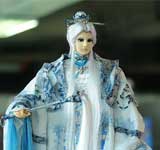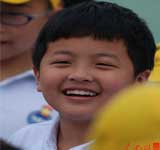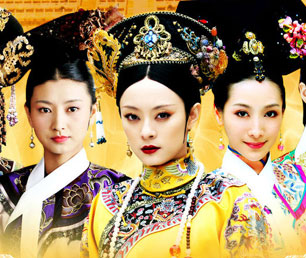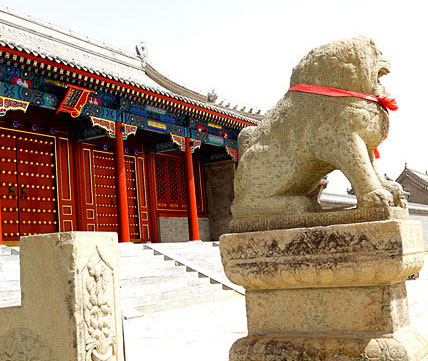| Tanzanian dancers thrill Beijing audiences and defend their culture | |
http://english.dbw.cn銆€銆€
2012-05-23 09:07:46
|
|
|
Tanzanian officials are determined to avoid the destruction of their traditions, in the face of overwhelming pressure from the globalization of culture. Rather than staying at home and worrying about what the world might bring to their doorstep, Tanzanian dancers are striding out onto the world stage in an effort to spread their culture while defending it at home. "National identity depends on culture and tradition and we've set up an institute of culture and art under the culture ministry which teaches these things to school students to preserve folk art," said Hermas J.M. Mwansoko, who is the Director of the Cultural Department at Tanzania's Ministry of Information, Youth, Culture and Sports. He is traveling China with Tanzania's National Service art troupe (in Swahili Jeshi la Kujenga Taifa or JKT), who performed at Tsinghua University on Monday. "We also encourage pupils to engage in our culture so there is no danger that traditional songs and dances will disappear," he said. Following its performance at Tsinghua University on Monday evening, the JKT will bring their diverse repertoire of songs and dances to Beijing audiences at the Beijing Chemistry University today and the National Museum of China on Friday to inaugurate the African Culture Focus event. The troupe, which came to Beijing eight years ago, is in the city again thanks to an invitation from the annual Meet In Beijing Arts Festival. Wearing traditional tribal garb, the troupe is set to perform their traditional dances such as the Lipango, the Ngokwa, the Kyaso and the Mngodo, which are characterized by rhythmic stamping, joyful cheering and dynamic dance movements. The dances, unique to these ethnic groups, are normally performed to welcome victorious warriors, or on some occasions to celebrate initiation rites or a successful harvest. In addition to performing the dances, the 17 actors will also sing songs in Chinese and Tanzania's official language of Swahili to pay tribute to the Chinese medical team in Tanzania and to welcome visitors to the country. According to Mwansoko, the troupe, set up in 1967 and run by the army, performs diverse traditional songs and dances that represent the more than 120 tribes throughout the country. The troupe was handpicked by the Chinese Ministry of Culture and received a full sponsorship to come to China. "The mood generated by the performance is contagious. Everyone had a big smile on his or her face while they were dancing, and it was almost as if it unleashed some primitive, even wild feelings," said Qin Anjin, a student from Tsinghua University after the show on Monday. "Their musical instruments are very simple, they just use some drums, but they demonstrate such good rhythm. Their dance movements are succinct but they present their sense of unity in such a vivid way." |
|
| Author锛? 銆€銆€銆€Source锛? global times 銆€銆€銆€ Editor锛? Yang Xiaoming | |
| Tanzanian president lauds China's assistance to his country | |
| China not throwing its weight amid China-Africa cooperation: senior Tanzanian media official | |
| Tanzanian first lady commends Chinese community's contribution to local development | |
| China's rapid development gives Africa hope: Tanzanian media official | |
| Tanzanian youths expect trip to China to witness economic progress |
 涓枃绠€浣?/a>銆€|銆€
涓枃绠€浣?/a>銆€|銆€










